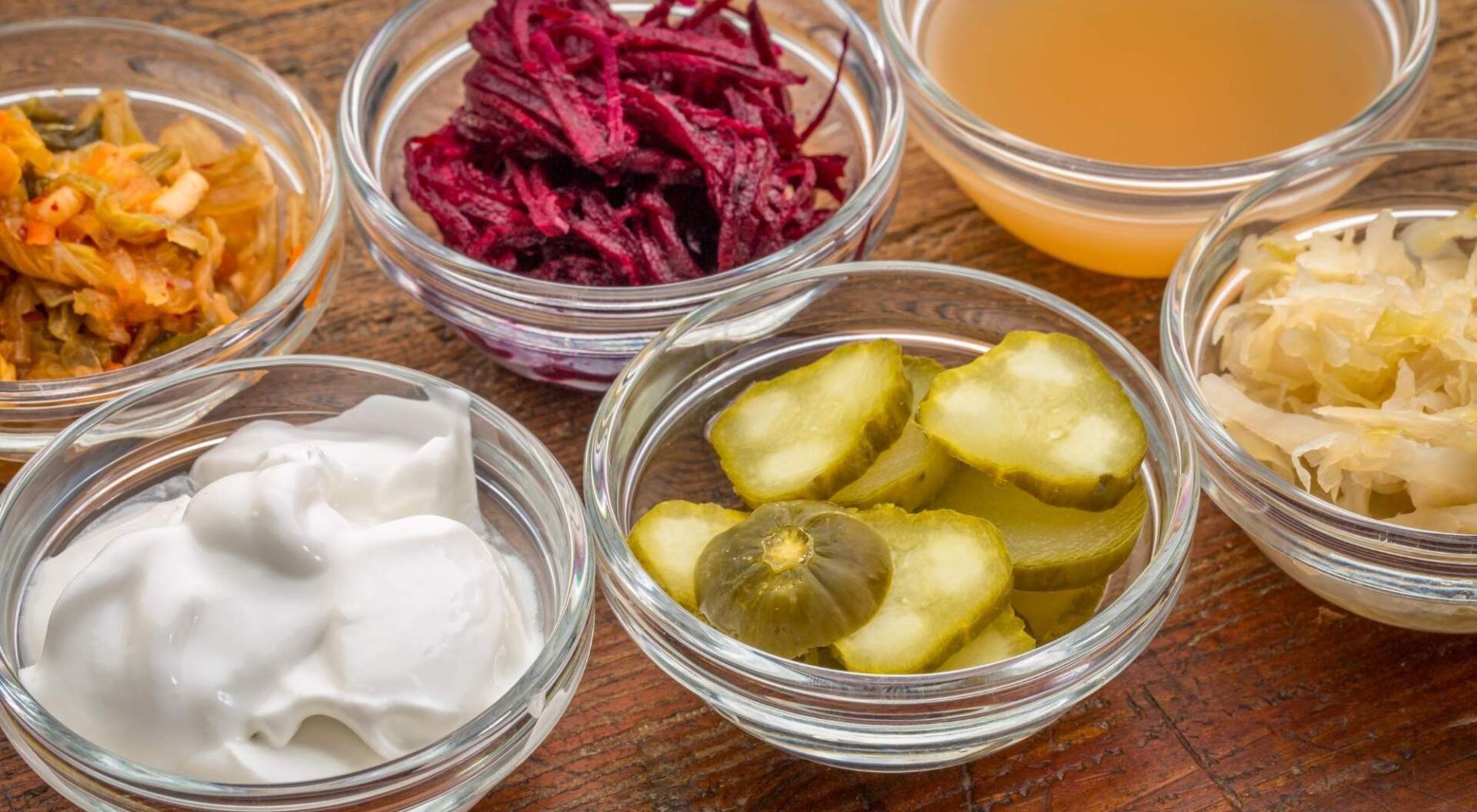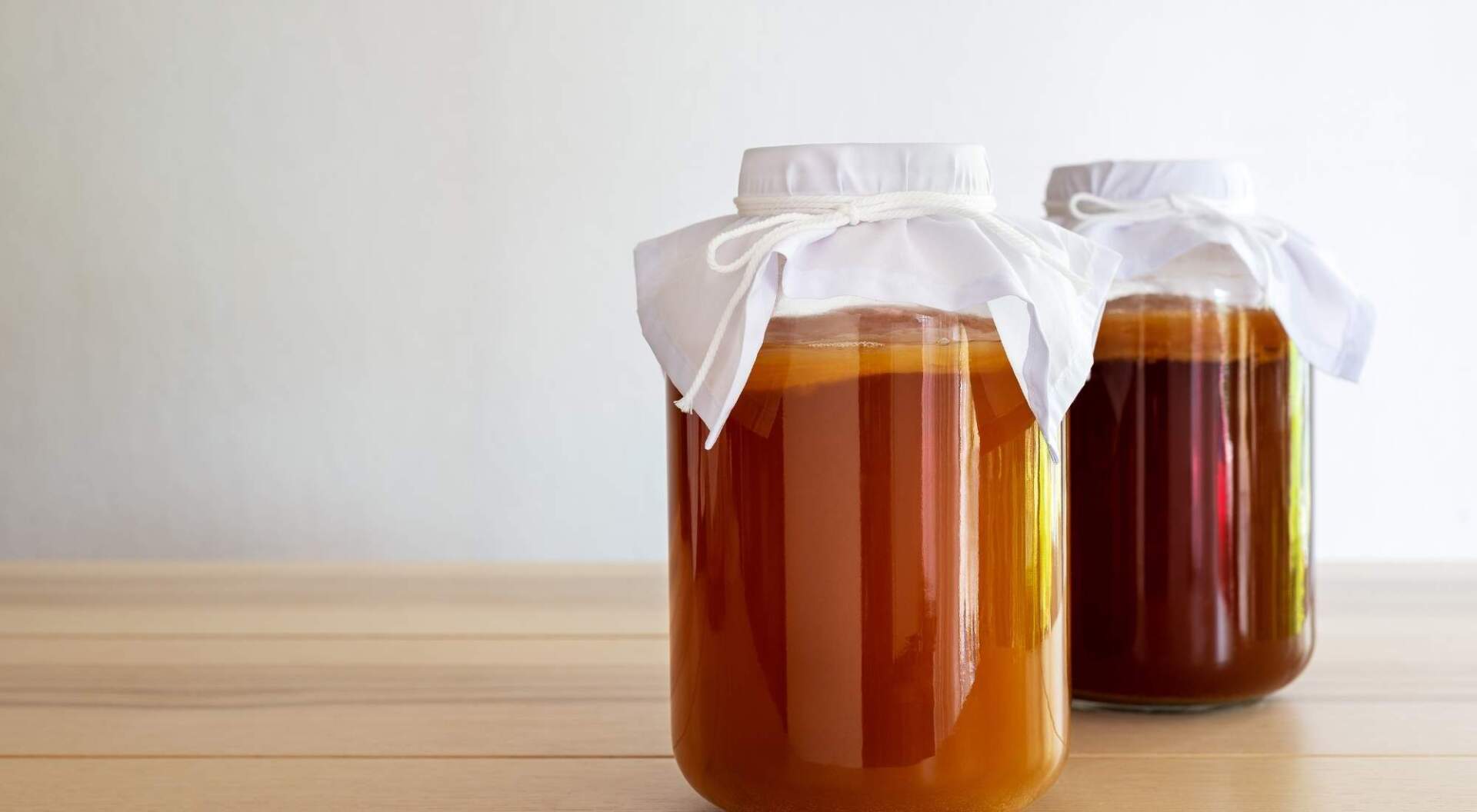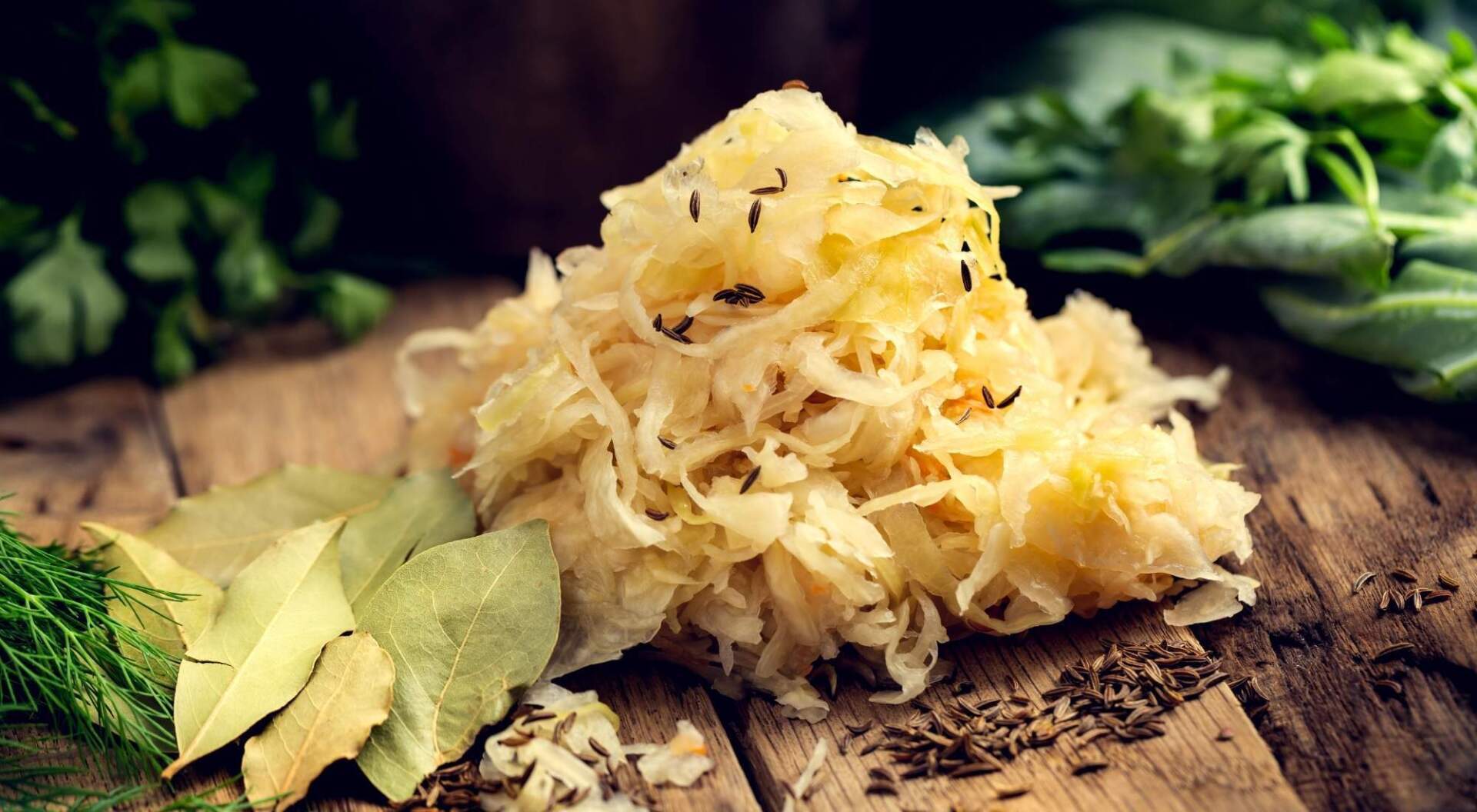Fermented Foods for Acid Reflux: Are They Helpful? How You Can Overcome Acid Reflux Naturally
"The content below is not intended to be a substitute for professional medical advice, diagnosis, or treatment. Always seek the advice of your physician or other qualified health provider with any questions you may have regarding a medical condition."
Have you dealt with acid reflux before? It’s no fun.
Symptoms like …
- Bloating
- Burping
- Burning pain in the throat or chest; and
- Nausea
… make this condition a hard pill to swallow — literally!
Fortunately, eating certain fermented foods can improve your digestive health and help with your acid reflux.
Read on to find out what these foods are and how they work — plus other things you can do to correct your condition.
Table of Contents
What Causes Acid Reflux?
Acid reflux is a common ailment related to the level of acid in your stomach. Many people think it is caused by having too much stomach acid, but actually, the opposite is true!
When you have low levels of stomach acid, the valve between the stomach and esophagus can become weak, allowing some of the stomach’s contents to splash up. Since the lining of the esophagus is much more delicate than that of the stomach, this causes a burning pain.
Low stomach acid levels also mean that it takes longer to digest foods. These undigested foods sitting in the gut can cause gas and bloating. This pressure on the valve makes us burp and also allows stomach acid to burn the esophageal area.
Fortunately, it is possible to control acid reflux through your diet.
Let’s talk specifically about how fermented foods help this condition.
Are Fermented Foods Good for Acid Reflux?
You may have heard people ask, “Can fermented foods cause acid reflux?” But actually, the opposite is true!
Fermented foods are great for acid reflux because they naturally improve your levels of stomach acid.
And fermented foods aren’t just good for digestion. They can also help:
- Lower blood pressure
- Promote weight loss; and
- Strengthen immune function
Incorporating fermented foods into your diet is a great way to control your health.
How Can Fermented Foods Reduce Acid Reflux?
Fermented vegetables and other foods have probiotic effects that can:
- Reduce inflammation from low levels of stomach acid
- Improve digestion; and
- Fight harmful bacteria
These effects will work together to soothe your gut and reduce the instances of stomach contents splashing up into the esophagus.
Not All Fermented Foods Are Created Equal
If you suffer from acid reflux, you know there are some foods to avoid. But did you know that there are also some fermented foods that won’t help your condition?
It’s true! Even though fermented foods are great for the gut in general, they don’t all react with your body in the same way.
An article published by Harvard Medical School points out one of the foods where there can be a big difference: pickles. Store-bought pickles are often made using vinegar and not the natural fermentation process. This means they don’t contain any gut-enhancing probiotics.
If you want to make sure the fermented foods you are purchasing have probiotics, look for labels that say “naturally fermented.” You should also see bubbles in the liquid when you open the product, indicating that there are living organisms inside.
What Fermented Foods Neutralize Stomach Acid? 5 Foods to Consider Adding to Your Diet
Since we know that all fermented foods don’t benefit the body in the same way, let’s focus on five examples that improve stomach acid levels: yogurt, kimchi, sauerkraut, kefir, and kombucha.
#1: Yogurt
There are many possible benefits of eating yogurt, including:
- Boosting the immune system
- Preventing osteoporosis; and
- Reducing the risk of high blood pressure
But yogurt’s role in improving gut health cannot be overlooked.
Yogurt is a fermented food rich in probiotics that improves digestion and reduces the frequency of acid reflux.
#2: Kimchi
Kimchi is a tasty staple of the Korean diet that is made of fermented vegetables. It is also full of probiotics, which leads to better digestion and fewer acid reflux flare-ups.
Another gut benefit of kimchi is that cabbage, which contains vitamin U, is one of its main ingredients. Vitamin U is
known to have anti-ulcer properties.
#3: Sauerkraut
Sauerkraut is similar to kimchi in that it is made of fermented cabbage. So it provides the same probiotic properties that help with acid reflux, as well as vitamin U to prevent ulcers.
Many people think they don’t like sauerkraut, but there are so many varieties that there’s sure to be a flavor combination you will enjoy. You can even make your own!
Some sauerkraut variations include:
- Polish kraut with shredded cabbage and carrots or beets
- German kraut that includes juniper berries and caraway seeds
- Alsatian French kraut with potatoes added in
- Kraut mixed in with other foods such as meatballs
- And so many more
#4: Kefir
Kefir is a fermented milk drink of Russian origin. It is similar to thin yogurt.
Kefir is another gut-healthy probiotic that helps sustain healthy bacteria in the stomach and reduce acid reflux.
An additional great thing about kefir is that it can be used as a milk alternative for those who are lactose intolerant.
#5: Kombucha
Kombucha is a fermented drink with Chinese origins. It is made with tea, sugar, yeast, and bacteria.
Like other foods rich in probiotics, kombucha helps:
- Nourish the digestive tract
- Protect the stomach lining; and
- Prevent regurgitation
Kombucha is also known to help with weight loss. It’s easy to make at home and can be customized to come in delicious flavors like:
- Lemon ginger
- Peach pie
- Blueberry
- Mint lime mojito
- Pumpkin spice
- And more
Kombucha can be a great way to improve your gut health and keep acid reflux at bay while enjoying a tasty beverage.
Why Diet – Not Medication – Is Usually a Better Long-Term Solution for Acid Reflux
Americans spend billions of dollars each year on medications to help with acid reflux. But that isn’t the best way to deal with the condition.
Although over-the-counter and prescription medicines can help alleviate the symptoms, they are only a temporary fix. A better solution is to get to the bottom of what’s causing the acid reflux in the first place and address it.
Nutrition Response Testing at HealthierU can help you find out why you’re experiencing acid reflux and help you address it without using traditional medication.
The fermented foods we’ve listed above will help with the condition, but NRT will help us figure out if there’s anything else you should be doing —
or not doing.
Beyond Fermented Foods: 5 Additional Ways to Overcome Acid Reflux Naturally
The foods you eat are important when it comes to acid reflux, but there are other things you can do to lessen the condition.
#1: Avoid Overeating
When the stomach is very full, it can cause more reflux up into the esophagus. So it makes sense that larger meals would make the condition worse.
If you are prone to acid reflux, you’re better off having more frequent but smaller meals throughout the day.
#2: Avoid Foods That May Trigger Acid Reflux
We’ve talked about foods that can help with acid reflux, but there’s an even longer list of those that make symptoms worse.
If you want to control your acid reflux, you should try to avoid:
- Spicy foods
- Acidic fruits and vegetables
- Fried foods
- High-fat foods
- Caffeinated and carbonated drinks; and
- Alcohol
That may seem like a lot, but there are still plenty of delicious and nutritious foods that you can have.
You can also try eliminating all the foods on the list and then adding them back one by one to see how they affect your acid reflux.
#3: Maintain a Healthy Weight
If you have too much belly fat, the pressure can push the lower esophageal valve up and away from the support of the diaphragm. This makes it easier for the valve to open and for stomach contents to splash up.
Losing weight, especially belly fat, can help ease this pressure — and relieve acid reflux and heartburn.
#4: Avoid Caffeine — Try Herbal Teas Instead
Caffeine is also known to weaken the lower esophageal valve and cause problems with acid reflux.
Coffee is often called out as an offender because regular coffee usually has a lot more caffeine than tea and soda.
But everyone reacts to caffeine differently. If you are a regular coffee drinker and have problems with acid reflux, try cutting out your morning cup of joe and see how it helps.
#5: Incorporate Light Exercise Into Your Daily Routine
Many people who suffer from acid reflux find moderate and low-impact exercises that keep the body as upright as possible can help alleviate their symptoms.
Exercises such as …
- Walking
- Light jogging
- Yoga; and
- Stationary biking
… are great choices. These will help by aiding in digestion and helping with weight loss, which can lead to fewer acid reflux episodes.
Are Fermented Foods and Diet Changes the Answer to Alleviating Acid Reflux? Let HealthierU and Nutrition Response Testing Help You Find a Solution
At HealthierU, we believe that your body knows what’s wrong with it. We use Nutrition Response Testing to find the causes of many symptoms and address them without medication.
Whether you’re experiencing acid reflux or other digestive issues, we can help.
We also do testing for …
- Hormonal imbalance
- Menopause
- Hypo-/Hyperthyroidism
- Lower back pain
… and a host of other health issues.
Contact us today and let us help you get on the road to better health.






